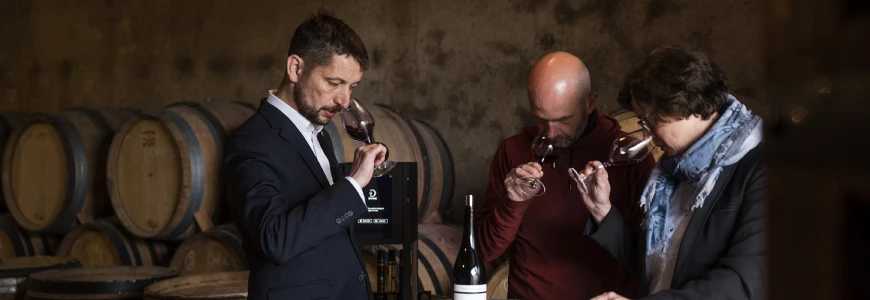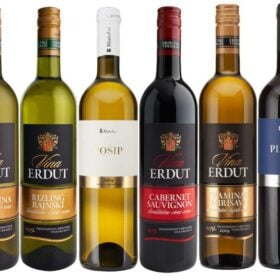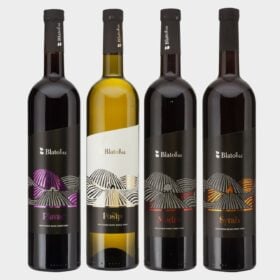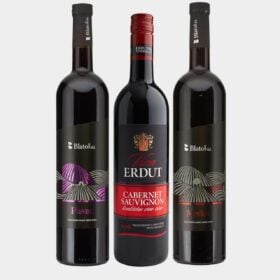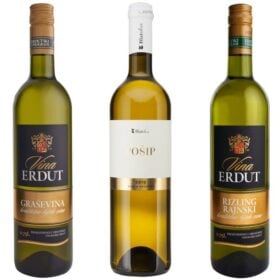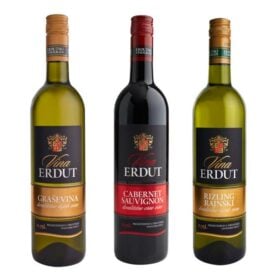Welcome to the intriguing and complex world of wine, where every sip tells a story and every... aroma a history. Wine is not just a drink; it is an art form, a science, and for many a lifelong passion. In this article we delve deeper into the roles of three important players in this world: the sommelier, the oenologist and the vinologist. Each of these professionals plays a unique role in how we experience wine, from the careful selection and presentation to the creation and in-depth knowledge of this versatile product.
If you've ever enjoyed a perfectly paired wine with a meal, you've probably wondered who is responsible for this magical combination. Or maybe you're curious about the process behind making your favorite wine. In this article we explore the different paths and responsibilities of sommeliers, oenologists and vinologists. We look at their education, daily tasks and the passion needed to excel in these exciting professions.
Whether you are a wine enthusiast, someone considering a career in the wine industry, or simply curious about the art and science behind wine, this article provides a comprehensive overview and will undoubtedly enrich your appreciation of wine. So let's start this journey of discovery through the world of sommeliers, oenologists and vinologists.
Content
What is a Sommelier?
Often seen as an artist in the world of wine, a sommelier plays a crucial role in the gastronomic experience. But what exactly does a sommelier do, and what makes someone an expert in this refined art?
- Definition and Role of a Sommelier:
A sommelier is much more than a wine waiter. This professional is responsible for everything related to the wine experience in a restaurant or wine bar. This includes selecting, purchasing, storing and serving wines. A sommelier must have an in-depth knowledge not only of wines, but also of the interplay between wine and food, in order to create the perfect wine-food to create combinations. - The Journey to Becoming a Sommelier: Training and Certification:
The path to becoming a sommelier is one of dedication and continuous education. Aspiring sommeliers often undergo specialized training and obtain certifications from recognized wine institutes. These programs include not only the study of different wine varietals and regions, but also wine etiquette, customer service, and sometimes even basic sommelier skills such as decant en taste. - Daily Duties and Responsibilities of a Sommelier:
A sommelier's day is diverse and challenging. It often starts with checking and updating the wine stock and putting together the wine list. During the day, the sommelier advises customers, organizes wine tastings and ensures the correct storage and service of wines. An important aspect of their role is also educating restaurant staff on the wine list to ensure guests are always well informed.
The profession of sommelier is one of passion, patience and continuous growth. In the following sections we will see how the roles of oenologist and vinologist compare to those of the sommelier, and how these professionals together shape the world of wine.
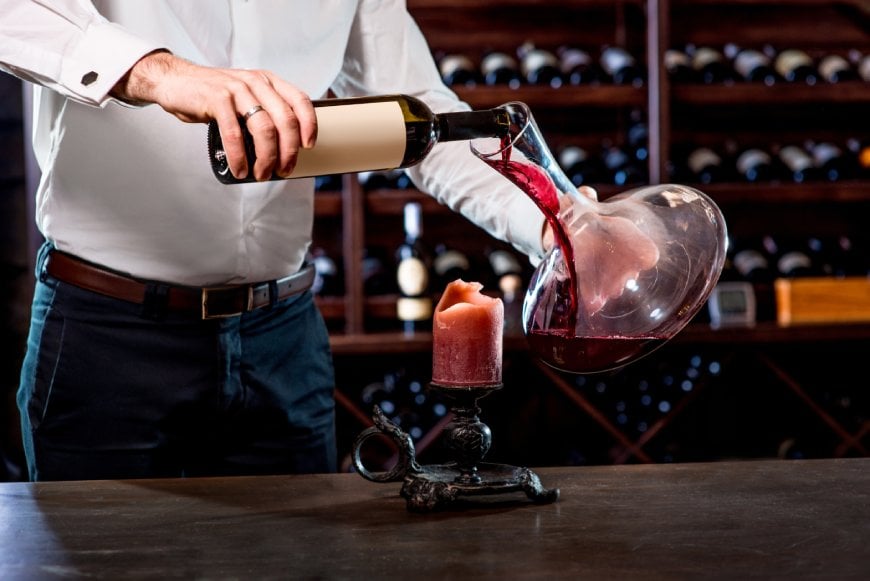
What is an Oenologist?
While the sommelier forms the bridge between wine and the consumer, it is the oenologist who brings the wine to life. This section highlights the lesser-known, but essential profession of the oenologist.
- Explanation of the Profession of Oenologist:
An oenologist is a scientist specialized in everything related to wine making. This professional is responsible for overseeing the entire process of wine production – from the cultivation of the grapes to the fermentation, maturation, bottling and sometimes even the marketing of the wine. Oenologists combine scientific knowledge with artistic flair to create wines that are both unique and consistent. - The Science of Wine Making: From Grape to Bottle:
Winemaking is a complex science that requires precision and attention to detail. Oenologists must have extensive knowledge of chemistry, microbiology, and climatology. They work closely with grape growers to select the best grapes and apply different techniques during fermentation and maturation to achieve the desired flavor profiles. - Education and Skills Required for an Oenologist:
To become an oenologist, most people undergo scientific training in the field of viticulture and oenology. This can range from specialized diplomas to master's degrees. In addition to academic knowledge, practical experience is crucial. Many oenologists spend time in different wine regions to deepen their understanding of various grape varieties and winemaking methods.
The role of the oenologist is invaluable in the wine industry. They are the architects behind the wines we drink, with an ability to master both the science and art of winemaking. In the next section we will take a closer look at the vinologist, a professional who focuses on the theoretical knowledge and education of wine.
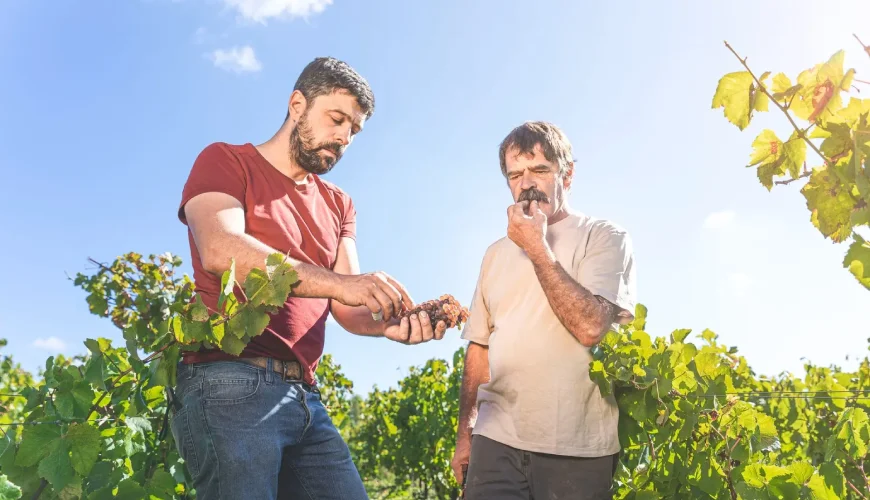
What is a Vinologist?
After discovering the roles of the sommelier and oenologist, we now focus on the vinologist. This wine professional has a unique place in the wine world, with a focus on knowledge and education.
- Definition of a Vinologist and How It Differs from a Sommelier:
A vinologist is an expert in wine knowledge. Unlike a sommelier, who focuses on the service and presentation of wine, the vinologist focuses on studying, analyzing and understanding wine. A vinologist has a thorough knowledge of wine regions, grape varieties, wine production processes and the historical, cultural and economic aspects of wine. - The Focus on Wine Knowledge and Education:
Vinologists are often involved in teaching others about wine. They can work as wine educators, writers or consultants. Their goal is to transfer knowledge to wine enthusiasts, sommeliers in training or even to the general consumer. Vinologists often organize courses, tastings and workshops, using their in-depth knowledge of wine to educate and inspire others. - The Path to Becoming a Vinologist:
The path to becoming a viticulturist usually involves a combination of formal education and practical experience. Many vinologists have a background in oenology, viticulture, or even sommelier studies. In addition, continued self-study and attendance at specialized courses and tastings is essential to stay abreast of the ever-changing world of wine.
Vinologists are an essential part of the educational side of the wine industry, sharing their knowledge and passion for wine. They help to deepen the appreciation of wine and spread knowledge of it to a wide audience. In the next section we explore how sommeliers, oenologists and vinologists work together and complement each other in the wine industry.
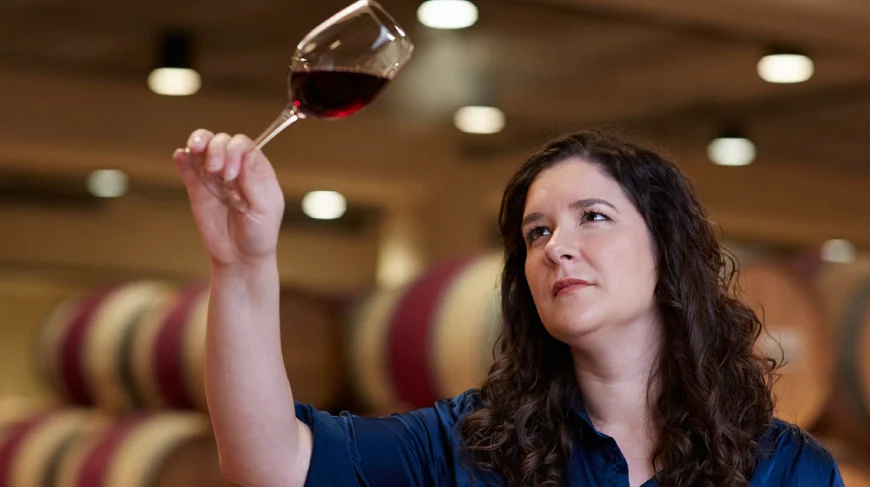
The Synergy between Sommeliers, Oenologists and Vinologists
The wine industry is a great example of how different professions complement and strengthen each other. Let's see how sommeliers, oenologists and vinologists work together to improve the wine experience.
- How These Professionals Work Together in the Wine Industry:
While each of these professions is unique, there is significant overlap and collaboration. Sommeliers, for example, rely on the expertise of oenologists to select quality wines. Oenologists, in turn, can use feedback from sommeliers to refine their winemaking processes. Vinologists form the educational bridge, by providing both sommeliers and wine enthusiasts with in-depth knowledge about the wines they drink. - Examples of Synergy in Practice:
A practical example of this synergy can be seen at wine tastings and events. Here sommeliers, oenologists and vinologists can work together to provide a comprehensive experience, with the vinologist explaining the history and characteristics of the wine, the oenologist explaining the production process, and the sommelier providing advice on winefood combinations.
This collaboration emphasizes the complexity and richness of the wine world. Each of these professions contributes in its own way to our appreciation and understanding of wine.
Important Skills and Attributes
To succeed in the wine industry, there are certain skills and traits that are essential for sommeliers, oenologists and vinologists.
- Overview of the Skills and Characteristics that are Important in these Professions:
- Communication and Social Skills:
Especially for sommeliers, the ability to communicate effectively and build good relationships with customers is crucial. - Analytical and Critical Thinking Skills:
This is especially important for oenologists and vinologists, who must analyze and assess wines for their quality and complexity. - Passion for Wine and Lifelong Learning:
The wine world is always evolving, so a lifelong commitment to it teaching methodology and growth is essential for all three professions.
- Communication and Social Skills:
- The Importance of Passion for Wine and Lifelong Learning:
In the wine industry, passion is not just a driver, it is a necessity. These professionals must constantly stay informed of new trends, techniques and wines. Whether it concerns attending wine tastings, taking courses or simply taste of new wines, a true dedication to wine is what makes these professions so special.
Education and Career in the Wine World
A career in wine is built not only on a foundation of passion, but also on formal education and certifications one must obtain as a sommelier, oenologist or vinologist.
- Aspiring sommeliers can hone their skills by taking courses at institutes such as the Court of Master Sommeliers or for Wine & Spirit Education Trust (WSET), providing both basic knowledge and advanced expertise.
- The Wine Certificate is a recognized diploma that demonstrates extensive knowledge of wine and serves as an admission ticket to the Vinologist training course. It prepares candidates to recognize the classic and new wine regions, explain wine production from grape to glass, understand global wine law and identify different wine styles.
- Oenologists often require an academic degree in viticulture and enology, while vinologists can delve into specialized programs that focus on wine history, regions and assessment. These courses are often supplemented with practical experience, which is essential for understanding the subtle nuances of wine teaching methodology to understand and master.
- Vinologists enrich their expertise by completing programs that focus on the history, appraisal and commercial aspects of wine. By combining these paths of formal education with vital practical experience, wine professionals gain the skills to fully master the subtle art and complex science of wine.
- At the pinnacle of wine education is the prestigious title Master of Wine (MW), awarded by the Institute of Masters of Wine. This title is only awarded to those who have passed a series of rigorous examinations and submitted an original research paper, demonstrating exceptional depth and breadth of knowledge. There are currently 414 people worldwide who hold the title Master of Wine (MW) who live or work in 31 different countries.
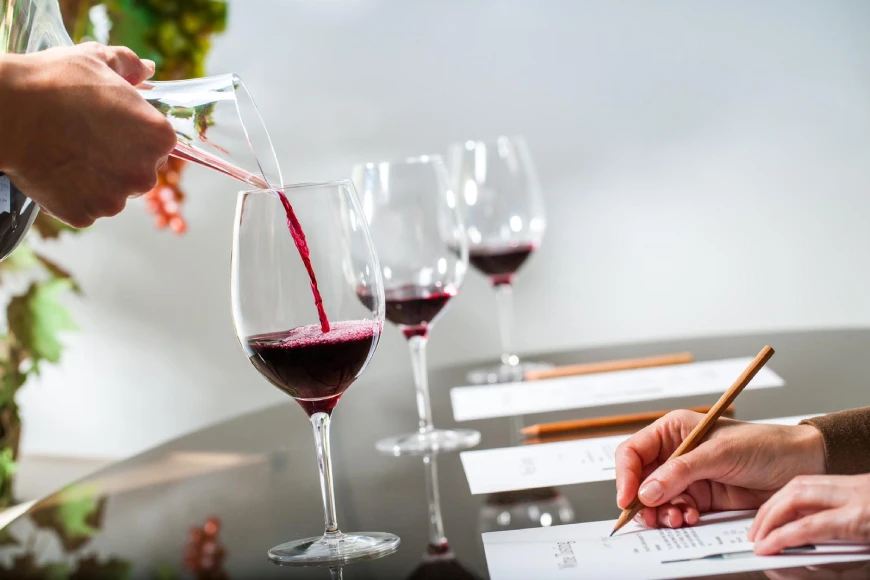
Future and Trends in the Wine Industry
The wine industry is constantly evolving, driven by technological advances and changing consumer preferences. Let's see how these developments affect the future of sommeliers, oenologists and vinologists.
- How Are These Professions Changing with New Trends and Technologies?
- Technology in Wine Production:
Oenologists see an increase in technological tools, such as advanced fermentation techniques and precision agriculture, that help them produce even better wines. - Digital Marketing and Social Media:
Sommeliers and vinologists are increasingly using digital platforms to promote wines and share their knowledge. Social media, blogs and online courses are becoming increasingly important for wine education and marketing. - Sustainability in the Wine Industry:
There is a growing trend towards sustainable and organic wine production, which impacts all aspects of the industry, from the vineyard to the wine list.
- Technology in Wine Production:
- The Future of Wine Tasting and Education:
- Virtual Wine Tastings:
The pandemic has led to an increase in virtual wine tastings and events, a trend that is likely to continue. - Advanced Training Methods:
With the rise of online platforms and augmented reality (AR), the ways in which wine education is delivered are becoming increasingly innovative.
- Virtual Wine Tastings:
These trends show that the wine industry is dynamic and adaptable, with exciting possibilities for the future.
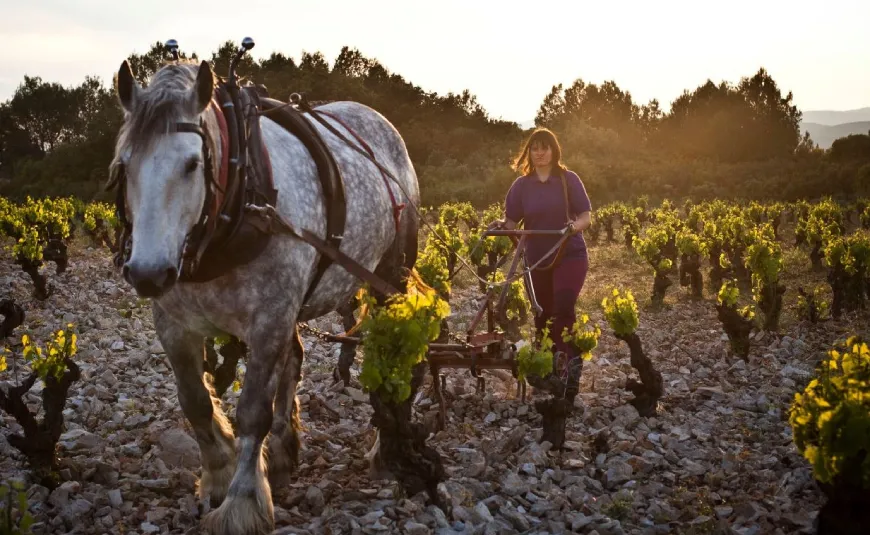
Closing
In this article we have explored the fascinating worlds of sommeliers, oenologists and vinologists. Each plays a unique role in the wine industry, from creating the wine to sharing their knowledge and passion with others.
- Summary of Key Points:
- We've seen how sommeliers master the art of wine selection and service, how oenologists apply the science behind winemaking, and how vinologists dedicate themselves to educating and spreading wine knowledge.
- The synergy between these professions enriches our wine experience, while their shared passion and continued education are essential to their success
We hope this article has inspired you and enriched your knowledge about wine. Maybe it will even motivate you to explore further, whether it's wine tasting, studying, or simply enjoying a glass of your favorite wine.
As the wine world continues to evolve, one thing remains constant: the love of wine and the craftsmanship it takes to produce and appreciate it. What will be the next big development that transforms the way we experience wine?

